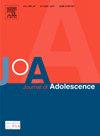The links between parenting, self-esteem, and depressive symptoms: a meta-analysis
Abstract
Introduction
Framed by attachment and cognitive theories, the current meta-analysis tested the direct and indirect links among parenting dimensions (parental support, authoritative control, psychological control, and behavioral control), self-esteem, and depressive symptoms for children and adolescents.
Methods
Based on 53 studies, and 74 independent samples, the present study used One-Stage Meta-analytic Structural Equation Modeling (OSMASEM) to investigate these links, including testing a mediation effect by self-esteem between parental support-, authoritative control-, psychological control-, behavioral control-, and depressive symptoms. It also tested for potential moderation effects by several variables.
Results
The evidence indicated that parental support (β = .29), authoritative control (β = .23), and behavioral control (β = .07) are positive correlates of self-esteem, while psychological control (β = −.26) is a negative one. It also found that self-esteem was negatively associated with depressive symptoms (β range: −.49 to −.53). Furthermore, parental support (β = −0.14), authoritative control (β = −0.10), and behavioral control (β = −0.05) are negative correlates of depressive symptoms, while psychological control is a positive correlate (β = .11). OSMASEM also provided evidence that parental support, authoritative control, psychological control, and behavioral control are indirectly associated with depressive symptoms, via self-esteem.
Conclusion
Parenting dimensions are associated with depressive symptoms both directly and indirectly. That is, self-esteem partially mediates the relationships between parental support, authoritative control, psychological control, and behavioral control with depressive symptoms. Furthermore, OSMASEM moderator tests provided evidence of several significant moderators, including age, sex, parenting measurement, and self-esteem measurement.

 求助内容:
求助内容: 应助结果提醒方式:
应助结果提醒方式:


